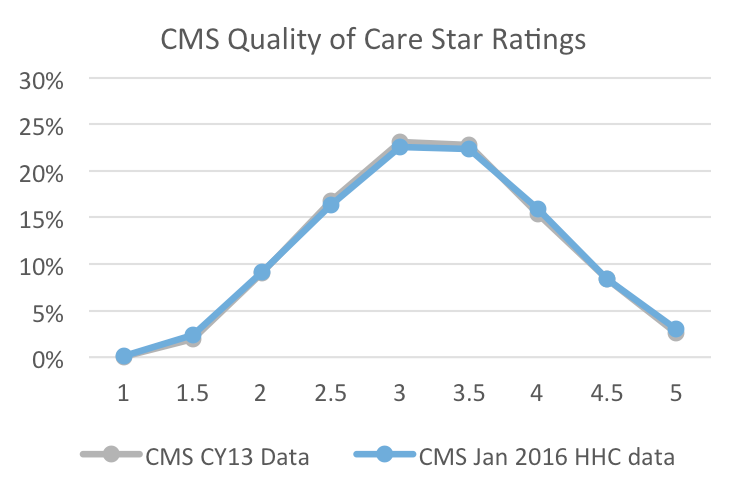Quality Star Ratings up for Refinements
The Centers for Medicare and Medicaid Services (CMS) recently announced they were establishing a new technical expert panel (TEP) to review the Quality of Patient Care Star Ratings. With just about a year of reporting, CMS is already considering refinements to the rating methodology. I recall CMS’s original Open Door Forum (ODF) where 10 quality measures were contemplated, calculating whole star ratings as an indicator of quality. With provider feedback, the Pneumococcal Vaccine Ever Received measure was eliminated and half star breakdowns were introduced,
but there were other concerns the industry voiced in the ODF’s that did not get addressed. In the Charter for the TEP, many of those concerns will be raised for feedback as part of the project objectives including:
- The calculation methodology
- Considerations of incorporating beneficiary socioeconomic status
- Modifications to reflect the experience of agencies serving special populations of patients, including chronically-disabled and medically fragile patient cohorts
- Usability of the rating system for patients and advocates
The current calculation uses decile rankings for each measure along with adjustments to statistical significance to determine the overall star ratings. I wondered how the distribution of the star ratings matched to CMS’s original calculations using CY 2013 industry data. Comparing the CY 2013 data to the latest available star ratings from the January 2016 Home Health Compare update, the distribution changed very little, but then again, that is the way the scoring was designed.

In fact, across the last two or three of years, home health compare scores have improved in each of the 9 Star measures, but agencies do not get credit for improving unless they perform better (think percentile ranking) than their peers nationally. This is different than the way the HHCAHPS star ratings are calculated, where ratings are clustered and the distribution can lead to a higher proportion of top scores. I expect this nuance in rewarding high performing agencies, not just distributing scores based on percentile rankings, will be one of the options the TEP will address.

